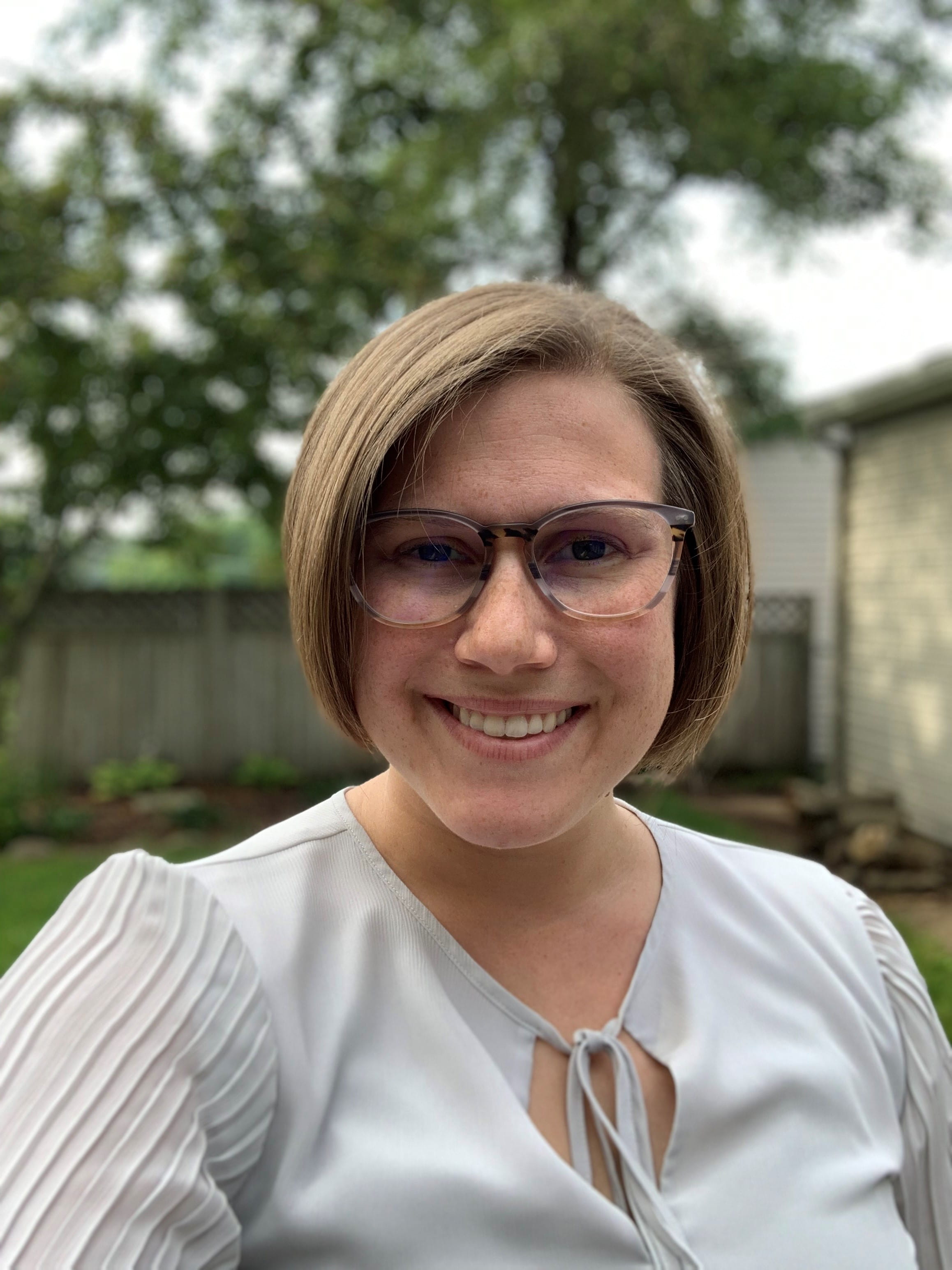The web Browser you are currently using is unsupported, and some features of this site may not work as intended. Please update to a modern browser such as Chrome, Firefox or Edge to experience all features Michigan.gov has to offer.
Career Series: Fast Five with three EGLE Energy Services Unit staffers
October 17, 2023
As part of Careers in Energy Week, today’s MI Environment article profiles several staffers in the Energy Services unit of the Materials Management Division at the Michigan Department of Environment, Great Lakes, and Energy’s (EGLE). It’s the latest in a periodic Career Series that features the backgrounds and careers of EGLE staffers.
The staffers listed below answered these five questions:
- What is your position at EGLE and what office/city/region do you work out of?
- Discuss your education journey and your interest in energy.
- What is a typical workday like?
- How does what you do in your job have an impact on Michiganders’ lives?
- What advice can you offer to students considering your career path?
Cody Evans

- I am a departmental analyst within the Energy Services Unit, and I work out of Constitution Hall in Lansing.
- I attended Michigan State University and graduated with a bachelor’s degree in social relations and policy and a minor in environmental studies and sustainability. While studying at MSU, I served as the director of sustainability for the university’s student government and had the opportunity to work alongside sustainability staff on energy related projects/policies on campus. As a result, this involvement greatly expanded my interest in energy efficiency and renewable energy programs and led me to this role with EGLE’s Energy Services Unit.
- I have only just started with EGLE earlier this month, and my typical workday is still developing as I get settled in with programs. A program that I am taking on is the Community Energy Management Program (CEM), and the program aims to provide assistance to local communities and city governments across Michigan wherever they are at in the energy efficiency journey. In my role, I regularly respond to questions about the CEM program and assist program awardees with submitting documentation and providing project updates.
- Programs like the Community Energy Management Program provide crucial funding and resources for Michigan communities to either begin, continue, or expand improvements around energy efficiency and education. These efforts not only positively impact communities across Michigan but are ultimately beneficial to the planet, and I couldn’t be more excited to be a part of these efforts.
- As someone who is new to EGLE and a recent graduate myself, my advice would be to find a community or group of passionate people within your area of interest and take advantage of opportunities to get involved in things that are important to you.
Lauren Magirl

- I am an engineer within the Energy Services Unit in Material Management Division. It’s a fully remote job with the home office in Constitutional Hall in Lansing. My position oversees grants for electric vehicles charging infrastructure and enhancing the reliability and resilience for the electric grid.
- I graduated from Western Michigan University with a bachelor’s degree in Chemical Engineering and minor in Pulp and Paper Engineering. After college, I worked for a pulp and paper company in Oregon as a process and environmental engineer. Later I became a full-time air quality engineer managing their Title V program. In 2017, I joined the Michigan Air Quality Division (AQD) as a district inspector in Warren and quickly moved to the AQD permit section. In March 2023, I joined the Energy Services Unit. My interest in energy started back in my career at the pulp and paper mill learning from the energy engineer about the utility department and the energy demands the facility had.
- A typical workday includes evaluating potential projects to see if they are eligible for a grant and letting the potential applicant know what grant opportunities we have open for their potential projects. For open grants, I process payment requests, making sure all the expenses are eligible for reimbursement and answering any questions they may have about the grant. I attend meetings and check-point meetings with our sponsorship grantees to review the progress they have made on their research.
- With the grants I manage, we are giving another funding opportunity to help the utilities increase the reliability and resilience of the electric grid which means fewer power outages from storms across the state. The EV Charging Infrastructure grants allow for less range anxiety for EV drivers across the state. These programs align with the objectives of the MI Healthy Climate Plan.
- Keep an open mind with your career path and ask questions to understand why they are doing something. Don’t be afraid to challenge to standard way of doing things but doing it respectfully. The best way to learn is by asking the employees that have been at a company for many years because they understand how the process works and they have the ideas on how to improve a process.
Michelle Rogers

- I am officially the building trades industry engineer in EGLE’s Energy Unit. Our unit is Michigan’s designated State Energy Office, and we are part of the Materials Management Division of EGLE. I work mostly remotely from home, and my base office location is Constitution Hall in Lansing.
- I got my bachelor’s degree in chemical engineering from Michigan State University. After working as a chemical engineer for a bio-fuel start-up company, I went to Wayne State University for my master’s degree in civil and environmental engineering. There, I was a graduate student researching demand-response and how the time-of-energy-use affects the resulting air emissions from power plants. After graduating from WSU, I came to work for EGLE’s Air Quality Division where I spent 10 years as a permit engineer, learning a ton about air quality regulations and about industry in Michigan, while permitting foundries, power plants, oil and gas processing facilities, and all kinds of other facilities. I recently started my current role. I’ve always wanted to be in the environmental space and especially working on anything related to addressing climate change, so working on energy-related issues was a natural fit.
- As the State Energy Office, it’s our job to make the best use of federal and state dollars to help achieve Michigan’s energy goals. We manage grant programs that advance energy efficiency, reduce carbon emissions, increase resiliency, and lower energy costs for Michigan residents, businesses, municipalities, and non-profits. So, toward that goal, depending on the time of year, I might be working on putting together a Request for Proposals, or fielding questions from potential grant applicants, or reviewing grant applications, or putting together grant agreements. I’ve only been in this role for six months, so I still have a lot to learn. I’ve had the chance to attend webinars and conferences and through those, learn a ton about building science, energy efficiency, building standards and codes, and other topics related to buildings and energy. It has also been an exciting time to learn about the funding opportunities for our state made available through the Bipartisan Infrastructure Law and Inflation Reduction Act.
- Our grant programs have a direct impact on the businesses, non-profits, farms, and individuals that receive them. It’s exciting to play a part in energy efficiency and renewable energy projects that will save people money and help the planet! These projects reduce air emissions, including carbon emissions, leaving Michiganders with cleaner air to breath and mitigating the effects of climate change. Our office also funds research and projects with goals such as increasing the reliability and resiliency of the electric grid, or helping low-income residents access the benefits of community solar. I’m particularly excited about upcoming tax credits and rebates that will help residents to weatherize and electrify their homes.
- This is probably the hardest question for me to answer. There are so many different career paths in the energy field that you could follow: engineering, computer/data science, construction trades, public policy, etc. I think seeking out mentors that work in the field that you are interested in, and testing out your assumptions is key. Sometimes a job might sound appealing, but it’s hard to know if you’ll enjoy it until you actually try something out for yourself. One way to do this would be to find someone who will let you job shadow them. Look into local trade organizations or chapters of professional organizations to find mentors and people who are willing to share their lived experiences. Even online forums can be helpful to find people who work in your field of interest and ask them about the good and bad parts of their job.